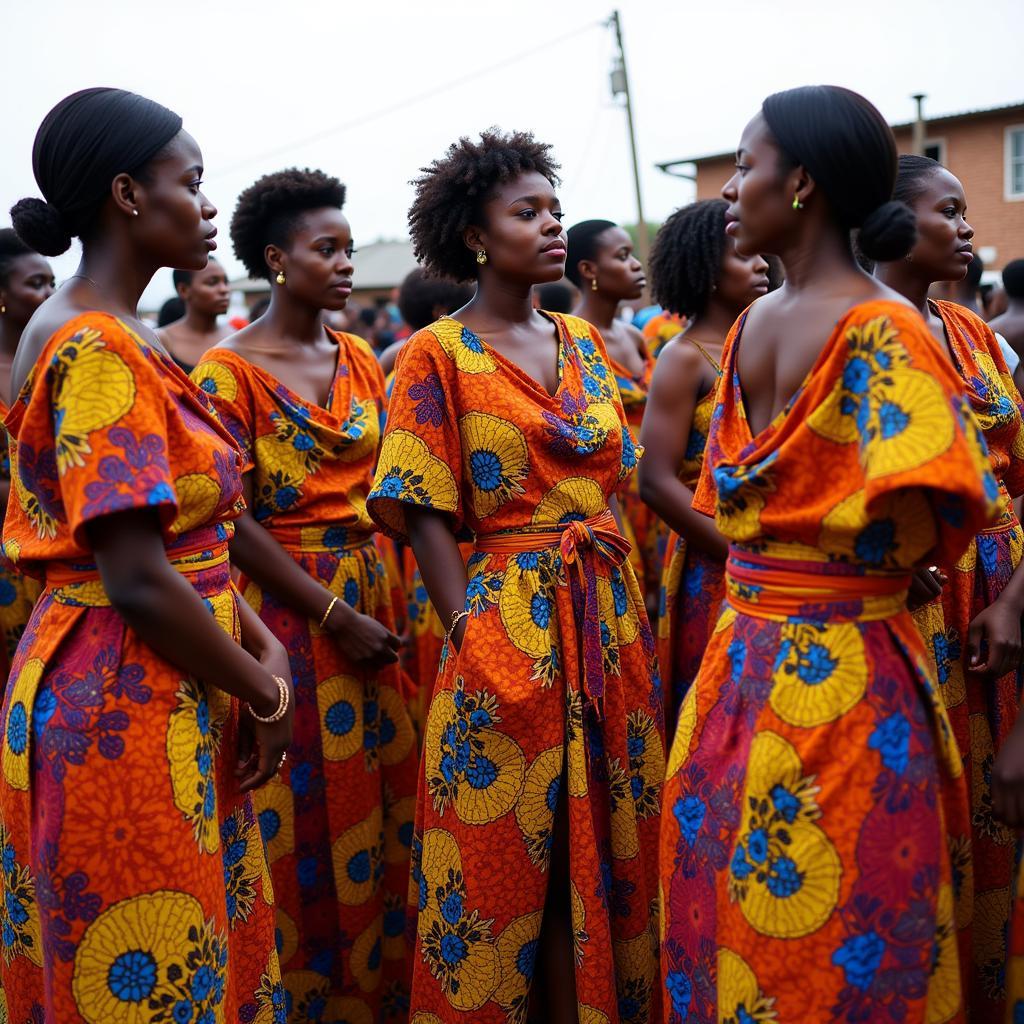Understanding African Cassava Mosaic Virus
African Cassava Mosaic Virus (ACMV) is a devastating plant disease affecting cassava crops across Africa. This article delves into the intricacies of ACMV, its impact on food security, and the ongoing efforts to combat this persistent threat. african cassava mosaic virus
The Impact of ACMV on Cassava Production
ACMV significantly reduces cassava yields, leading to food shortages and economic hardship for millions who rely on this staple crop. The virus causes characteristic mosaic patterns on the leaves, curling, and distortion, inhibiting the plant’s ability to photosynthesize effectively. This results in stunted growth and drastically reduced tuber production. The impact is particularly severe in sub-Saharan Africa, where cassava is a primary food source.
The economic consequences are far-reaching. Farmers experience significant income loss, impacting their livelihoods and contributing to rural poverty. The reduced supply of cassava also drives up market prices, making this essential food less accessible to vulnerable populations.
Transmission and Spread of ACMV
ACMV is primarily transmitted by the whitefly Bemisia tabaci. These tiny insects act as vectors, carrying the virus from infected plants to healthy ones. The whiteflies thrive in warm climates, contributing to the widespread prevalence of ACMV in tropical regions.
Furthermore, the virus can also spread through infected planting material. Using cuttings from diseased plants for propagation contributes to the perpetuation of the disease across generations of cassava crops. This underscores the importance of using disease-free planting material.
“Effective management of ACMV requires a multi-pronged approach, addressing both the virus itself and the whitefly vector,” says Dr. Abeni Adebayo, a plant pathologist specializing in cassava diseases.
Strategies for Managing ACMV
Several strategies are being employed to combat ACMV. These include:
- Resistant Varieties: Developing and deploying cassava varieties resistant to ACMV is a crucial step in mitigating the virus’s impact. These resistant varieties can significantly reduce yield losses and improve food security.
- Vector Control: Managing whitefly populations through insecticides and other control measures can help limit the spread of ACMV.
- Cultural Practices: Implementing good agricultural practices, such as using healthy planting material and proper sanitation, can also help prevent the spread of the disease. 10 african culture
- Early Detection: Early detection of ACMV is vital for timely intervention. Farmers need to be trained to recognize the symptoms of the virus and report any suspected cases to agricultural authorities.
“Farmers play a critical role in the fight against ACMV. By adopting recommended practices and reporting suspected cases, they can contribute significantly to disease control efforts,” emphasizes Dr. Adebayo.
Conclusion
African cassava mosaic virus continues to pose a significant challenge to cassava production in Africa. african cassava mosaic virus pdb However, through ongoing research, development of resistant varieties, and effective management strategies, we can strive towards minimizing the impact of this devastating disease and ensuring food security for millions.
FAQ
- What are the symptoms of ACMV?
- How does ACMV spread?
- What are the most effective control measures for ACMV?
- How can farmers help in the fight against ACMV?
- What is the impact of ACMV on food security?
- Are there any resistant varieties of cassava available?
- Where can I find more information about ACMV?
Common Scenarios
- A farmer notices mosaic patterns and leaf distortion on his cassava plants.
- A community experiences a shortage of cassava due to a widespread ACMV outbreak.
- Researchers are working to develop new cassava varieties resistant to ACMV.
Further Reading
You might also be interested in learning about other plant diseases affecting African crops or exploring traditional African farming techniques.
When you need assistance, please contact Phone Number: +255768904061, Email: kaka.mag@gmail.com Or visit our address: Mbarali DC Mawindi, Kangaga, Tanzania. We have a 24/7 customer service team.

